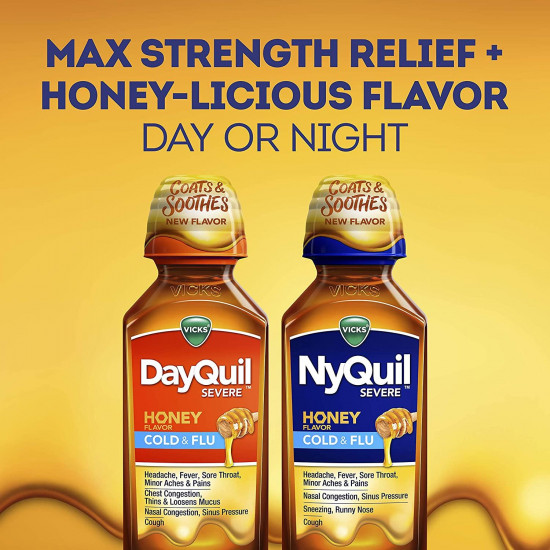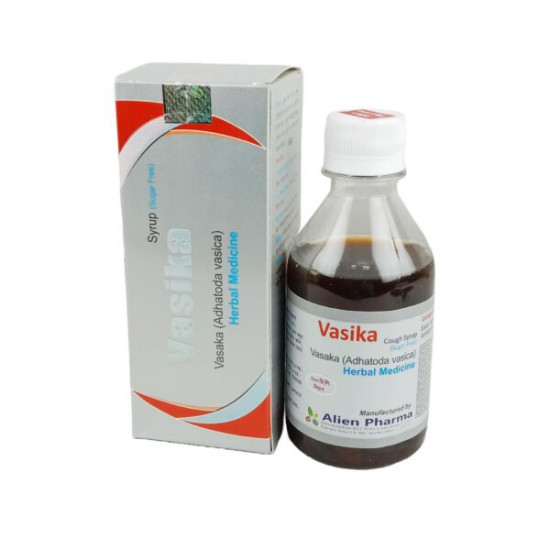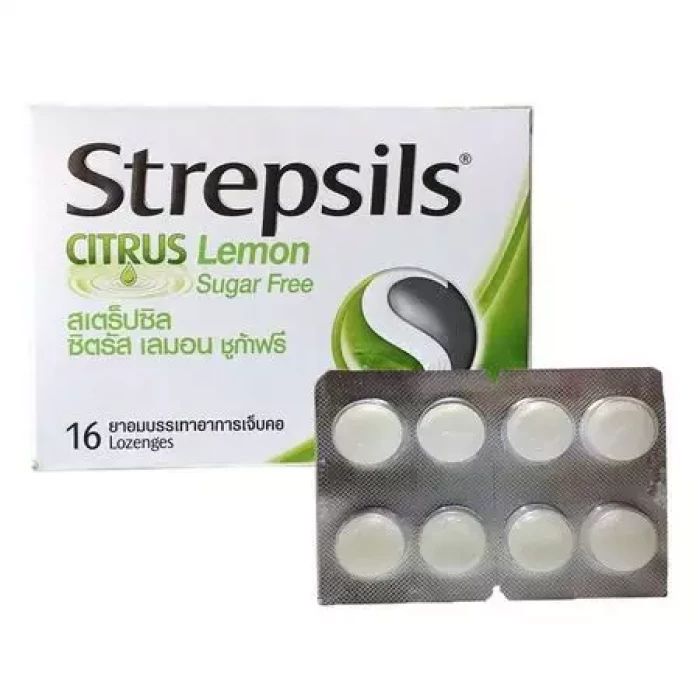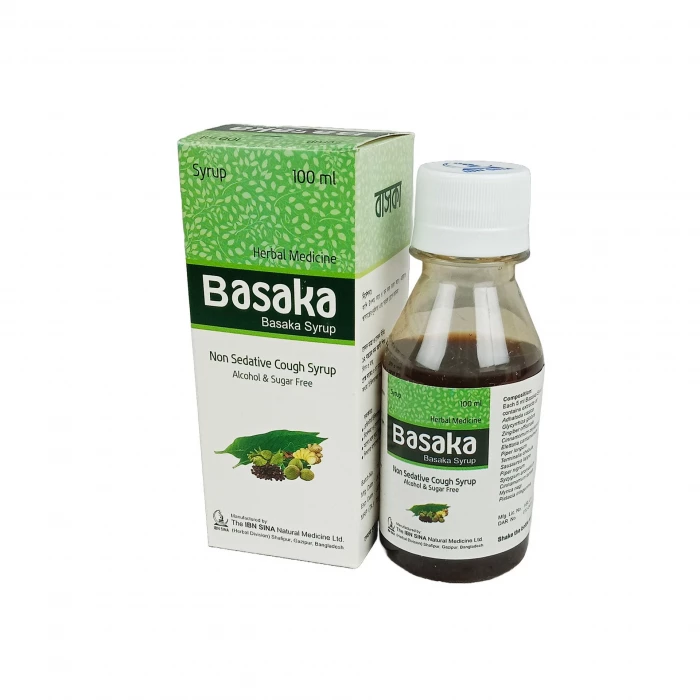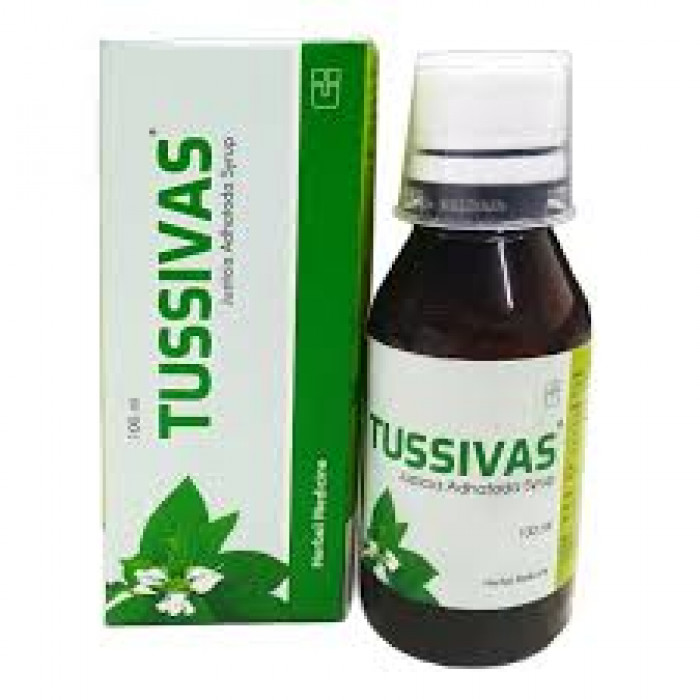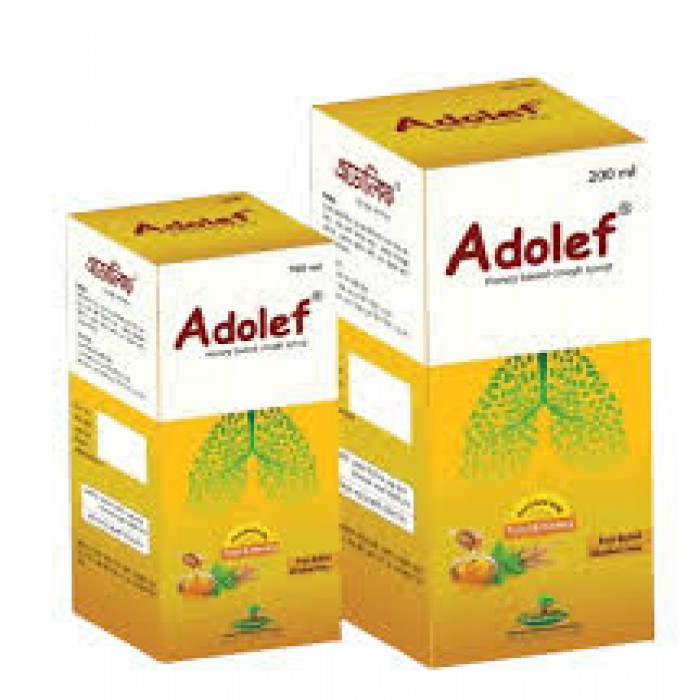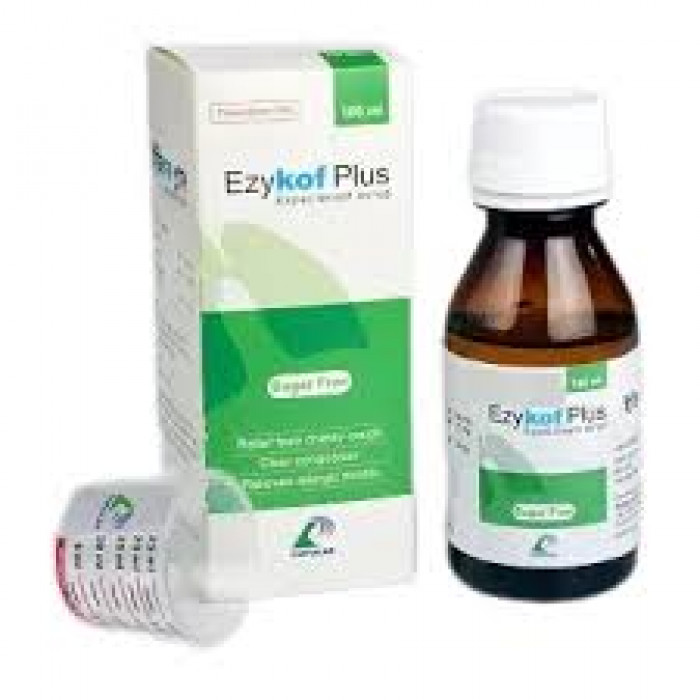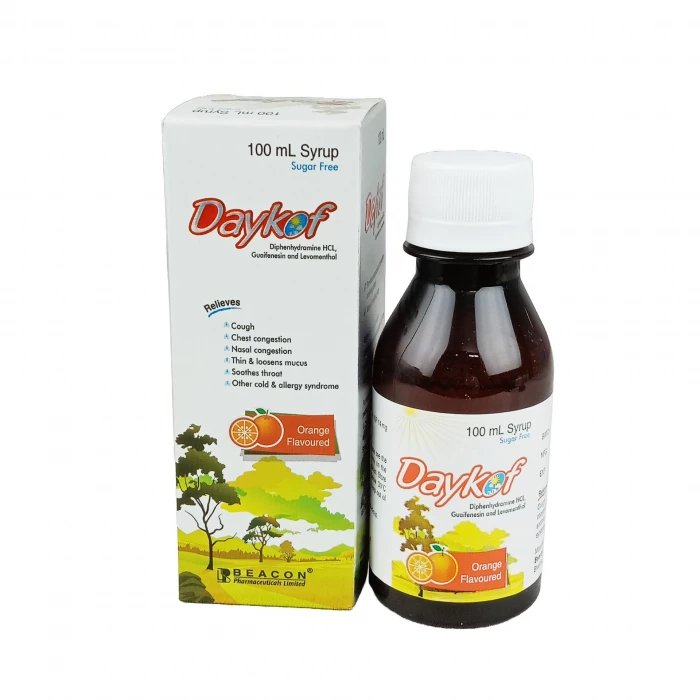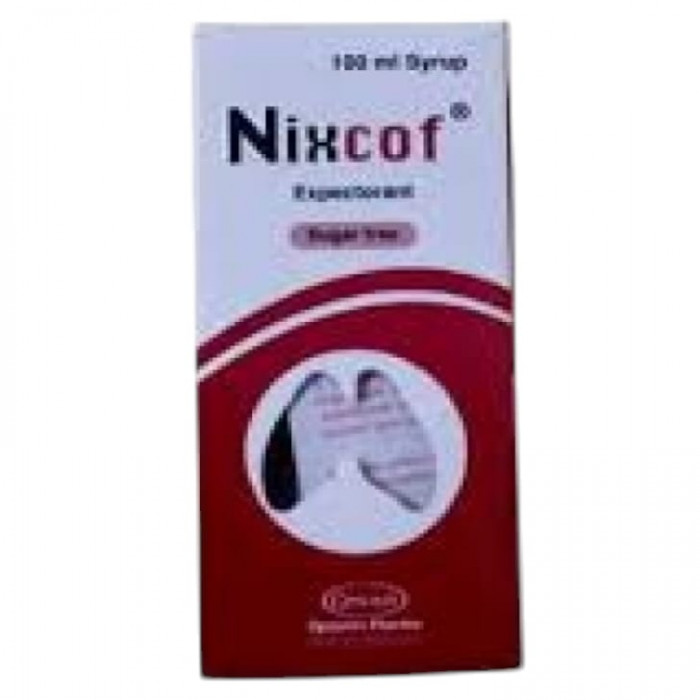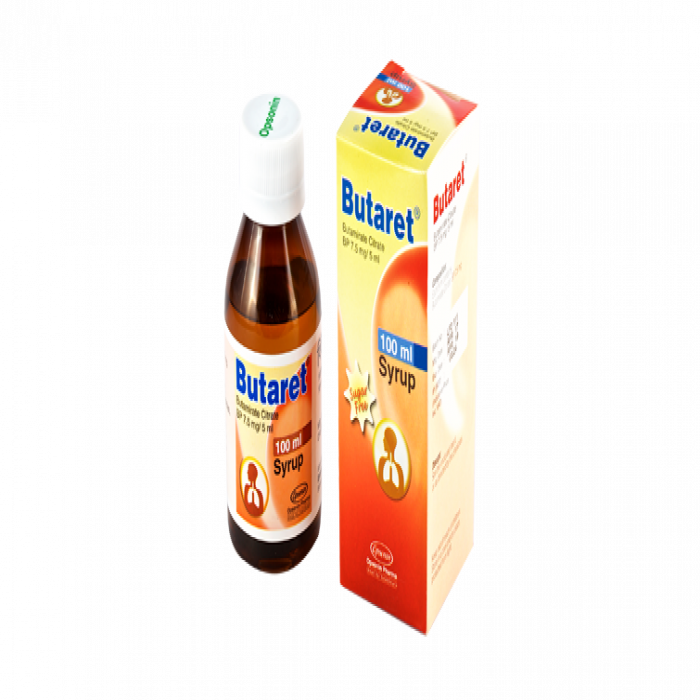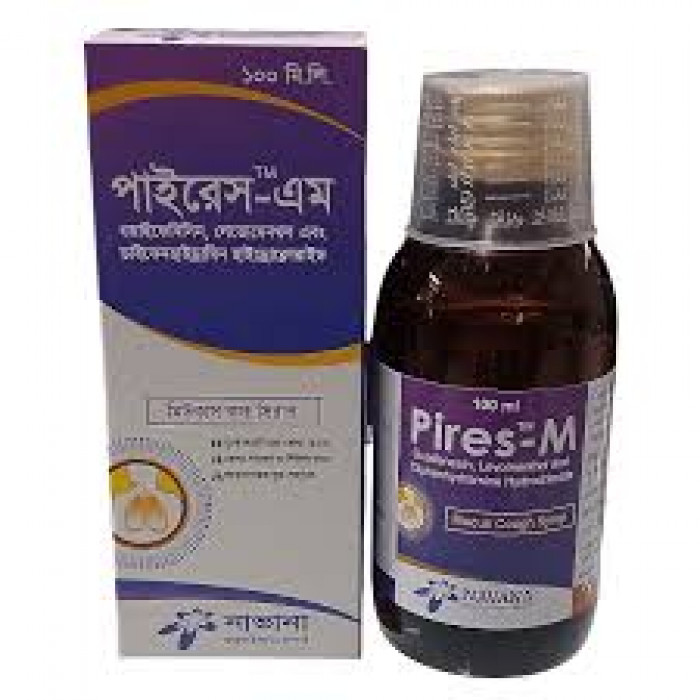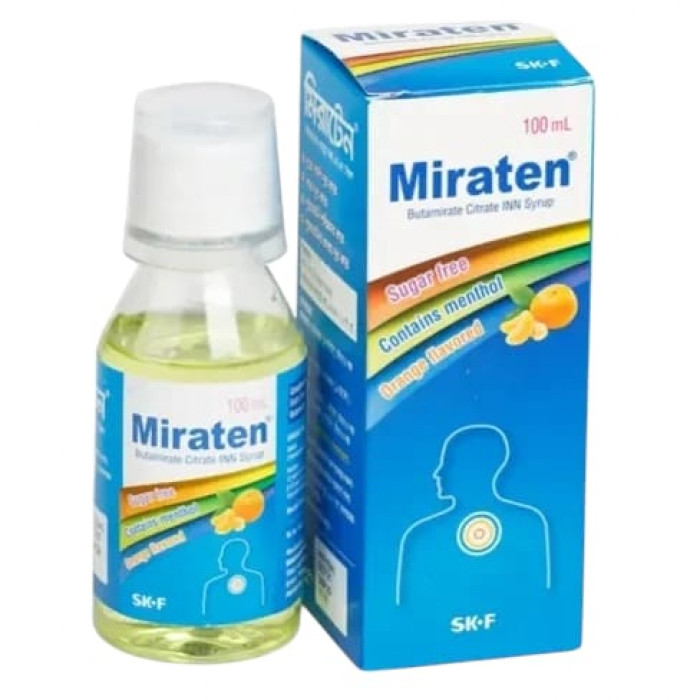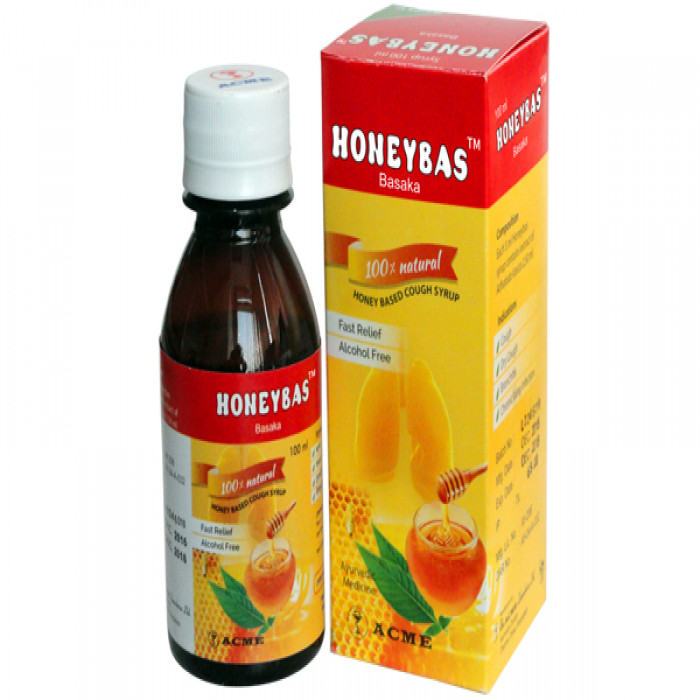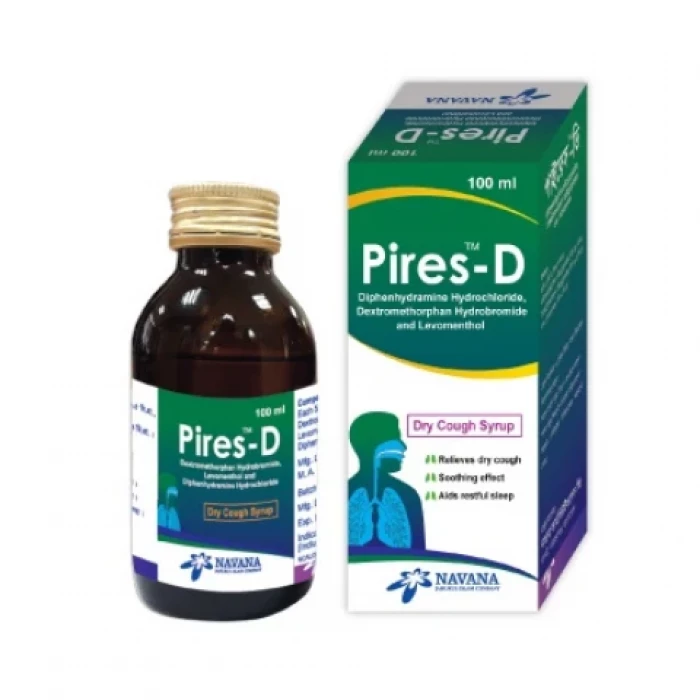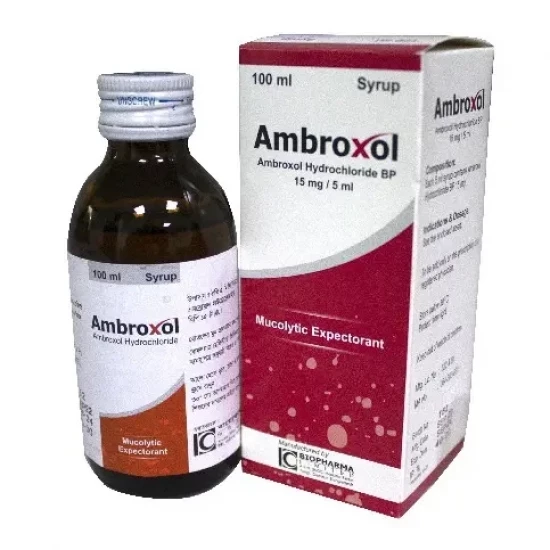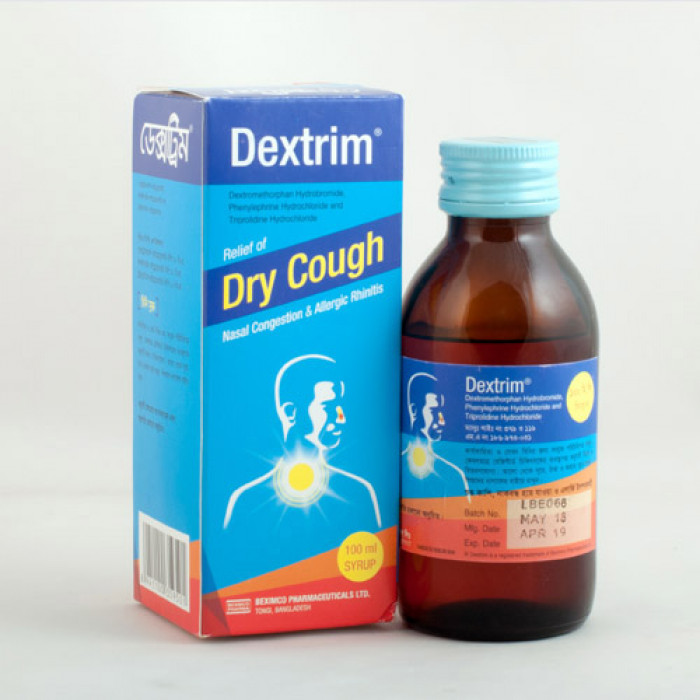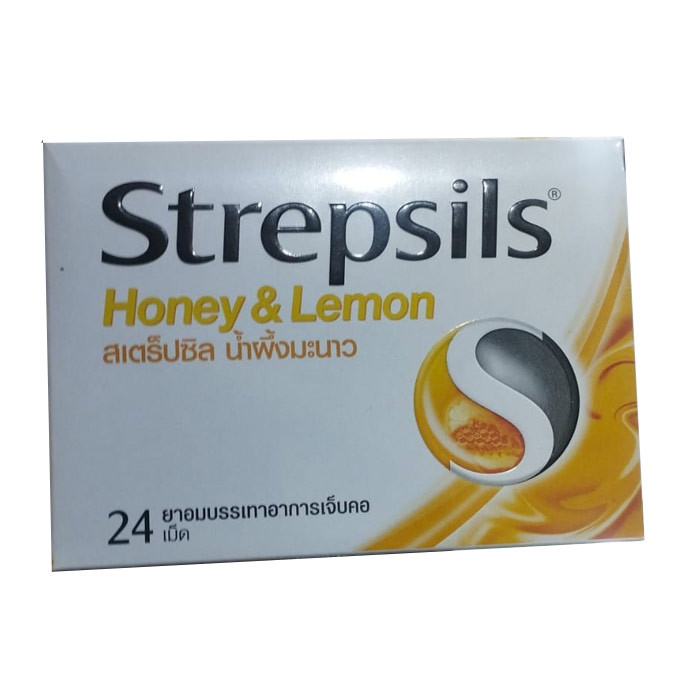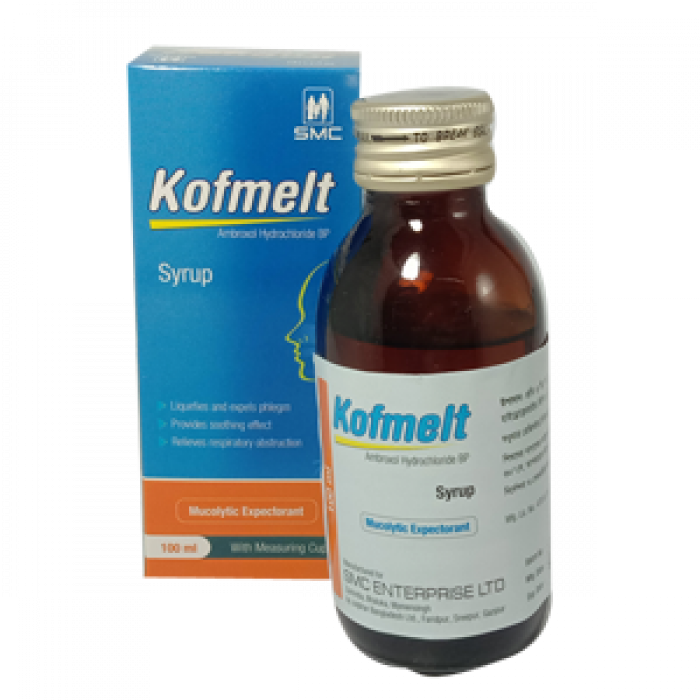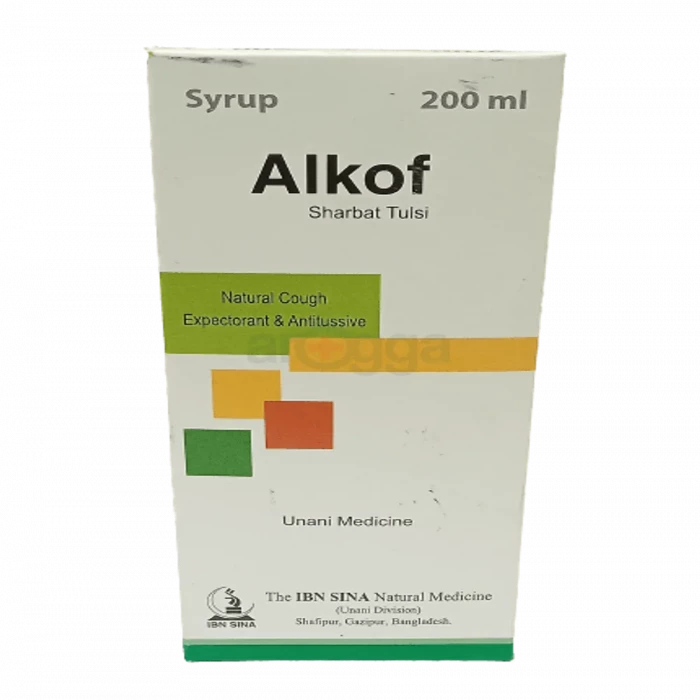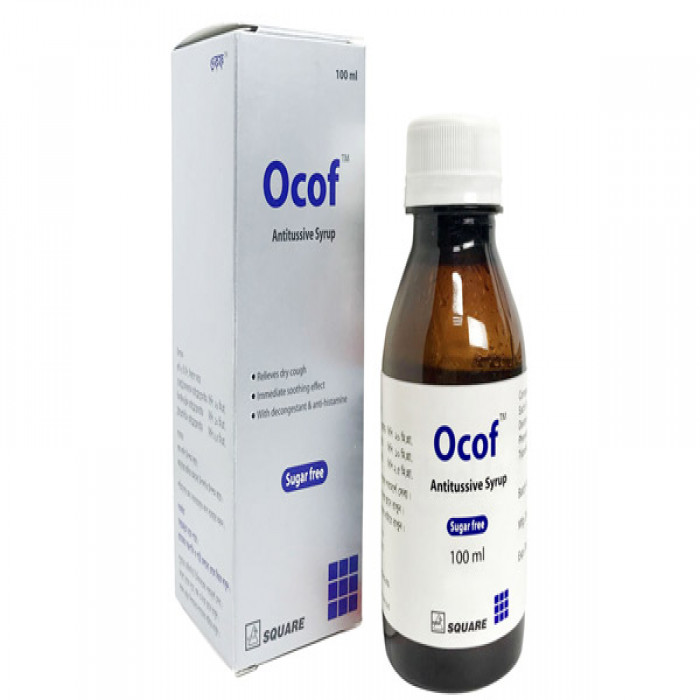
✔ 100% Authentic Product
👁️ Currently Viewing 4794
Ocof Syrup
- A pharmaceutical concoction called Ocof Syrup is typically used to treat dry coughs.
- It is also used to treat allergy symptoms such as sneezing, runny nose, throat discomfort, and watery eyes.
- Coughing (whether dry or productive) is the body's mechanism of removing irritants from the airways and avoiding infection.
Discount
Price: ৳ 105
MRP:
৳
110
5%
Off

100% Genuine Products, Guaranteed

Safe & Secure Payments, Always

Fast, Secure & Efficient Delivery

Proper Packaging
 Cash on Delivery - All over Bangladesh
Cash on Delivery - All over Bangladesh Regular Delivery - 12-24 Hours, Dhaka City* Charge Tk.39-59
Regular Delivery - 12-24 Hours, Dhaka City* Charge Tk.39-59 Regular Delivery - 24-48 Hours, Other Cities* Charge Tk.99-110
Regular Delivery - 24-48 Hours, Other Cities* Charge Tk.99-110
 ফ্রি ডেলিভারিঃ - ৯৯৯ টাকা+ অর্ডারে, ঢাকা
শহরে
ফ্রি ডেলিভারিঃ - ৯৯৯ টাকা+ অর্ডারে, ঢাকা
শহরে ফ্রি ডেলিভারিঃ - ২৯৯৯ টাকা+ অর্ডারে, ঢাকার
বাহিরে
ফ্রি ডেলিভারিঃ - ২৯৯৯ টাকা+ অর্ডারে, ঢাকার
বাহিরে
100% Genuine Products, Guaranteed
Safe & Secure Payments, Always
Fast, Secure & Efficient Delivery
Proper Packaging
 Cash on Delivery - All over Bangladesh
Cash on Delivery - All over Bangladesh Regular Delivery - 12-24 Hours, Dhaka City* Charge Tk.39-59
Regular Delivery - 12-24 Hours, Dhaka City* Charge Tk.39-59 Regular Delivery - 24-48 Hours, Other Cities* Charge Tk.99-110
Regular Delivery - 24-48 Hours, Other Cities* Charge Tk.99-110 ফ্রি ডেলিভারিঃ - ৯৯৯ টাকা+ অর্ডারে, ঢাকা
শহরে
ফ্রি ডেলিভারিঃ - ৯৯৯ টাকা+ অর্ডারে, ঢাকা
শহরে ফ্রি ডেলিভারিঃ - ২৯৯৯ টাকা+ অর্ডারে, ঢাকার
বাহিরে
ফ্রি ডেলিভারিঃ - ২৯৯৯ টাকা+ অর্ডারে, ঢাকার
বাহিরে
✅ Description:
Dextromethorphan Hydrobromide+Phenylephrine+Triprolidine is used in the treatment of dry cough.
Coughs are classified into two types: dry cough and chesty cough. A tickly cough produces no violent or thick mucus, but a chesty cough (wet cough) produces mucous or phlegm to assist clear your airways.
Ocof Syrup is made up of three drugs: Dextromethorphan (cough suppressant), Triprolidine (antihistamine), and Phenylephrine. (decongestant).
Dextromethorphan is a cough suppressant that works by preventing nerve impulses from the cough center in the brain from reaching the muscles that create cough.
Triprolidine is an antihistamine (anti-allergic medication) that acts by preventing the activity of histamine, a chemical that causes allergic responses.
Phenylephrine is a decongestant that relieves nasal congestion or stuffiness by constricting and restricting the tiny blood vessels of the nasal passages and airways.
Safety Advices

Alcohol
UNSAFE
Avoid consumption of alcohol with Ocof Syrup as it may increase drowsiness. Please consult a doctor before consuming alcohol with Dextromethorphan Hydrobromide+Phenylephrine+Triprolidine

Pregnancy
CAUTION
The safety of Ocof Syrup in pregnant women is unknown. Therefore, it is given to pregnant women only if the doctor thinks the benefits outweigh the risks.

Breastfeeding
CAUTION
It is unknown whether Ocof Syrup is excreted in human milk. Dextromethorphan Hydrobromide+Phenylephrine+Triprolidine is given to breastfeeding mothers only if the doctor thinks the benefits are greater than the risks.

Driving
CAUTION
Dextromethorphan Hydrobromide+Phenylephrine+Triprolidine may cause dizziness or drowsiness in some people. Therefore, drive only if you are alert after taking Ocof Syrup.

Kidney
SAFE IF PRESCRIBED
If you have any concerns regarding the use of Ocof Syrup in patients with Kidney problems, please consult a doctor.

Liver
CAUTION
Take Ocof Syrup with caution, especially if you have a history of Liver diseases/conditions. The dose may be adjusted by your doctor as required.

Children
CAUTION
Ocof Syrup should be used with caution in children if prescribed by a doctor.
✔️ Uses of Ocof Syrup
- Dry Cough
- Allergies
✔️ How to use Ocof Syrup
Syrup:
- Shake the bottle well before use.
- Take the prescribed dose by mouth using the measuring cup/dosing syringe/dropper provided by the pack.
✔️ How does Ocof Syrup work?
A combination of three medications, dextromethorphan hydrobromide, phenylephrine, and triprolidine, which treats dry cough, is known as Dextromethorphan Hydrobromide Phenylephrine Triprolidine. A cough suppressant called dextromethorphan stops coughing by decreasing the activity of the cough center in the brain. Decongestant phenylephrine relieves nasal congestion or stuffiness by constricting the tiny blood vessels. Sneezing, watery eyes, and runny nose are among the allergy symptoms that triprolidine treats.
✔️ Side Effects of Ocof Syrup
- Drowsiness
- Dizziness
- Stomach upset
- Difficulty in sleeping
- Nervousness and excitable
✔️ Quick Suggestions:
- Dry cough can be treated with dextromethorphan hydrobromide, phenylephrine, and triprolidine.
- Typically, it is only used for a brief period of time until the symptoms go away.
- Instead of using a standard tablespoon, measure the syrup using a dedicated dose-measuring spoon or cup.
- While using this medicine, drink more water to lubricate your throat and assist relieve congestion.
- If your cough lasts more than a week, tends to return, or is accompanied by a fever, rash, or ongoing headache, stop taking this medication and let your doctor know.
✔️ Indications of Ocof Syrup
The use of a nasal decongestant, a histamine H1-receptor antagonist, and an antitussive combination is beneficial for the symptomatic alleviation of upper respiratory tract problems accompanied by a non-productive cough that is approved for Ocof formulation.
✔️ Pharmacology
An antitussive, a decongestant, and an antihistamine agent are combined to make the medication. The cough center in the medulla is the target of dextromethorphan's central antitussive action, which is safe, efficient, and non-narcotic. Despite sharing a structural similarity with morphine, it lacks analgesic, habit-forming, and generally sedative effects. Decongestant phenylephrine causes the blood vessels in the nose tube to constrict. The tubes that remove fluid from the inner ear are used to relieve nasal and sinus congestion. In circumstances where the release of histamine is thought to be completely or partially responsible, triprolidine offers symptomatic relief. It belongs to the pyrrolidine family and is a powerful competitive histamine H1-receptor antagonist with modest CNS depressive effects that may make you drowsy.
✔️ Dosage of Ocof Syrup
- For adults & Children over 12 years: 1 teaspoonful 4 times a day.
- 6-12 years: 1/2 teaspoonful 4 times a day.
- A physician's advice should be obtained before administering this combination to children less than 6 years.
✔️ Administration of Ocof Syrup
- Take Ocof Syrup with or without food.
- Take it with food if it causes an upset stomach.
- Measure liquid doses carefully. Use the measuring device that comes with this medicine.
✔️ Interactions
Drug interactions might alter how your drugs function or raise the possibility of major negative side effects. All probable medication interactions are not included here. may have interaction with anti-allergic drugs. Keep a list of everything you use, including herbal items, prescriptions, and over-the-counter medications, and provide it to your doctor and pharmacist. Without your doctor's consent, never start, stop, or change the dosage of any medications.
✔️ Contraindications
This combination is contraindicated in patients with a known hypersensitivity to Dextromethorphan, Phenylephrine, or Triprolidine as well as in persons under treatment with Monoamine Oxidase Inhibitor within 2 weeks of stopping such treatment.
✔️ Pregnancy & Lactation
There are no specific data on the use of this combination during pregnancy & lactation
✔️ Precautions & Warnings
- The combination could make you feel sleepy.
- It may make the patient less able to operate machinery and drive.
- Despite the lack of hard evidence, those who take this syrup should refrain from also using alcohol or other sedatives with central action.
- Avoid or limit the intake of chocolate and caffeine-containing foods such as cocoa beans and tea leaves with Ocof Syrup as they may increase the risk of severity of side effects.
- In individuals with hypertension, heart disease, diabetes, hyperthyroidism, high intraocular pressure, and enlarged prostates, care should be used as with other sympathomimetic drugs.
- Unless otherwise prescribed by a doctor, this combination should not be used to treat persistent or chronic cough, such as that caused by smoking, asthma, emphysema, or coughs that are accompanied by excessive secretion.
✔️ Storage Conditions
Protect from light, and store in a cool and dry place. Keep out of the reach of children.
⚠️Disclaimer:
At ePharma, we’re committed to providing accurate and accessible health information. However, all content is intended for informational purposes only and should not replace medical advice from a qualified physician. Please consult your healthcare provider for personalized guidance. We aim to support, not substitute, the doctor-patient relationship.




